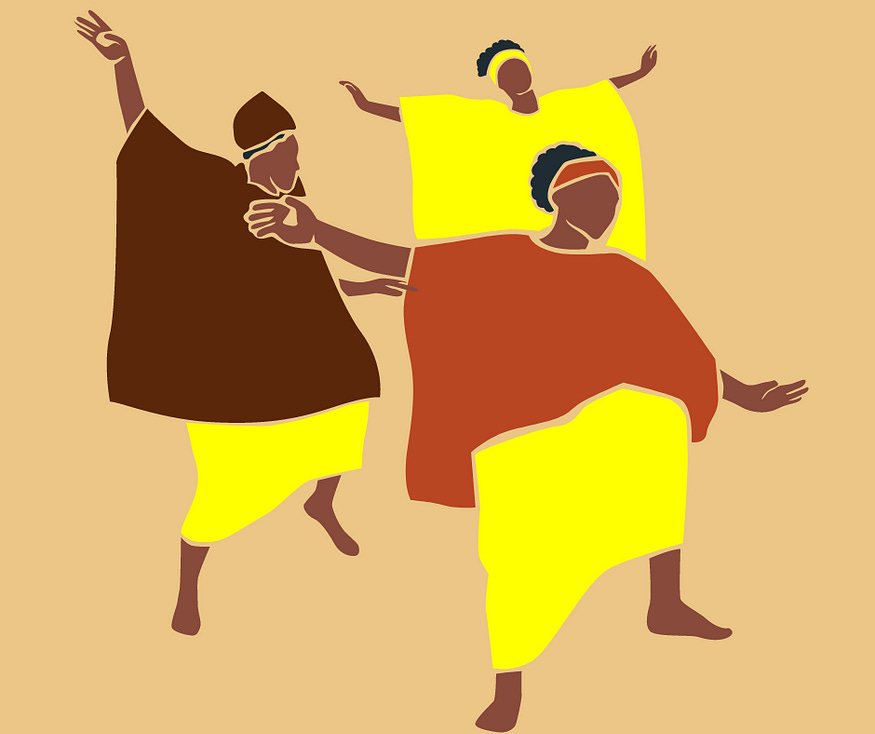
My language, Igbo, is very sound and word repetition-based. When we use sounds rather than words, we try to convey the seriousness of it and make our story more engaging.
As a writer on a mostly Western forum, I understand that my audience may not get the sounds I use and even their writing software can flag my word repetitions as wrong. This sometimes leaves me unsatisfied not fully expressing the emotions behind my piece.
Say you were on a bus and someone started shooting. You escaped with your life and you have come back to tell us the story:
When you say: “I was on a bus and someone started shooting. Gunshots everywhere…”
You will be boring us to death. To us, you are just “speaking English”
Speaking Englishis an actual insult because except you are in a professional setting, most of us don’t speak English. We mix English with Igbo, English with Hausa, English with Yoruba, or English with whatever Language your tribe is.
Or you just speak our pidgin English. So when someone says you are Speaking English, it is a dismissive way to say, you aren’t seriously affected yet by that situation since you are still trying to seem polished in speaking about the gunshots. Who are you trying to impress?
We know when the situation is serious because you will go:
“I was in a bus and next thing, ta ta ta — gunshots. Someone started shooting o! My heart was going gbim gbim gbim. I flew under the seat to hide… (‘o’ is also an important word ending sound because it is our way of screaming without outrightly screaming.)
And that is how you must tell us that story for us to engage with you. If you cannot ta ta ta enough, why bore us to death by telling it? We may not even properly understand how afraid you were if there were not enough sounds so, how do we empathize?
English isn’t our first language and when we speak it, we carry over word repetition especially to convey urgency.
Here is an example:
English: There was blood everywhere.
I want to say the same thing, I will simply say:
“Everywhere, Obara Obara (Blood blood)”.
Saying blood blood in my language tells the story while also conveying the right degree of horror.

As an Igbo woman, it seems kismet that a tribe of people whose language repeats words for urgency, is also a Nigerian. Nigerians if you don’t know, are always in a hurry. Hurry to where? Don’t ask me. I don’t know either but what we do well together as a nation, is that we share the love of the repetition of words like: now, fast, quick, sharp.
As in: Please come now now
Fast fast, let’s do this.
Sharp sharp, let’s go.
If you don’t talk like this, for god’s sake, how does the Nigerian know the situation is time-sensitive?
Even our pidgin English bears witness to our love of sounds and word repetition.
As an example: Say you are someone I like but you owe me money and I want to ask for my money back in my politest Pidgin English. You will know I am pissed when I start speaking by saying:
Abeg abeg, (I beg, I beg)… pay me back my money.
Abeg abeg abeg, don’t tell me that nonsense.
The double or triple ‘Abeg’, tells you the situation is not funny to me — at all, while conveying that I am keeping myself in check and not going crazy on you because I like or respect you. The anger of the average Nigerian can go from 0 to 100, if there was a scale so, they are keeping themselves in check.
Today, I am not keeping myself in check. I am welcoming you to a world of sounds and word repetitions so glorious, that I think people outside of my language are underserved because they are missing out on its enrichment. Abeg abeg, that hurts!
What nuances of your culture are missing in your writing for similar reasons? Do let me know.



